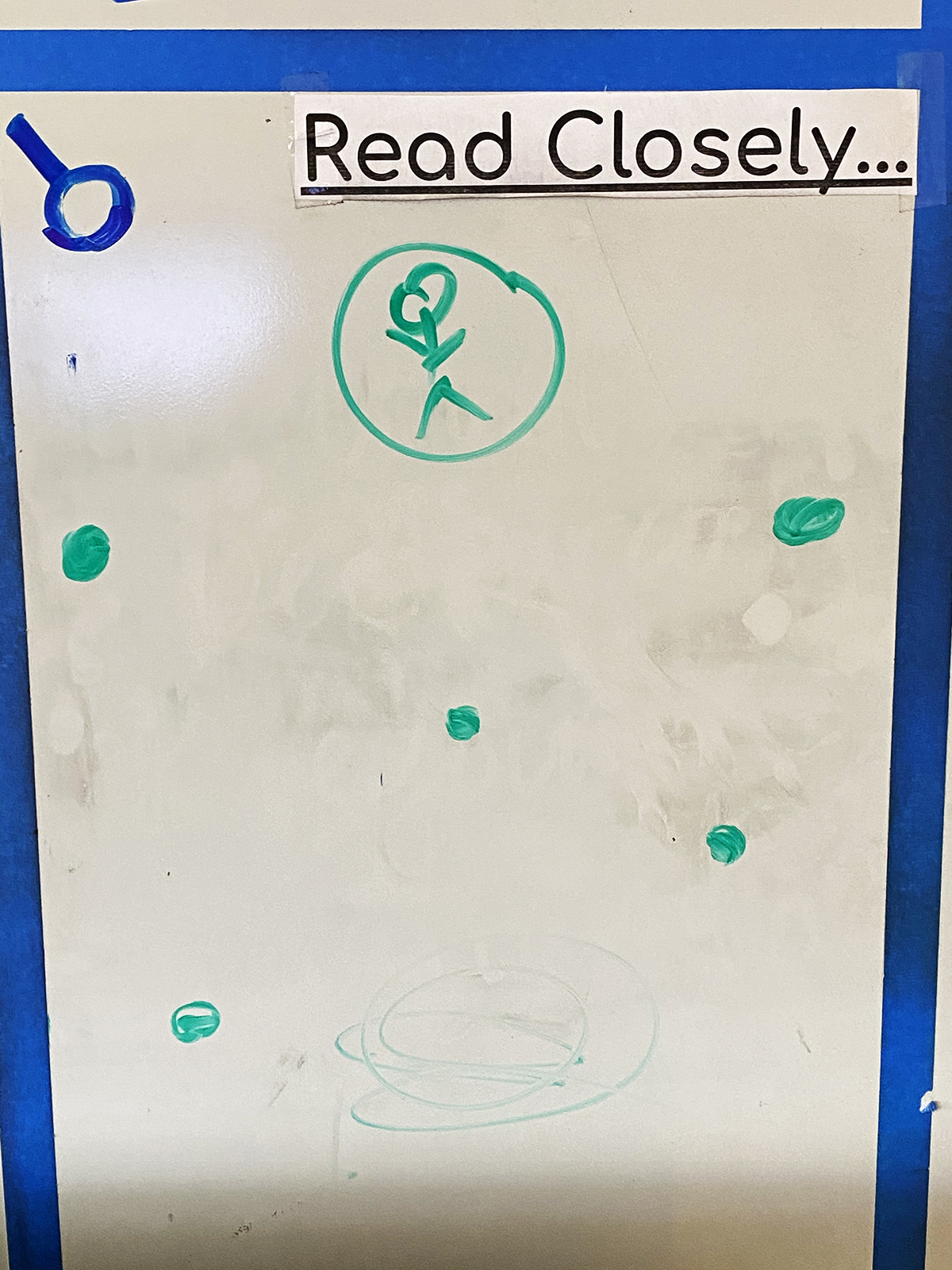“Build connections through acts of humanity and love.”
A LETTER TO FUTURE EDUCATORS
By Sandro Murillo
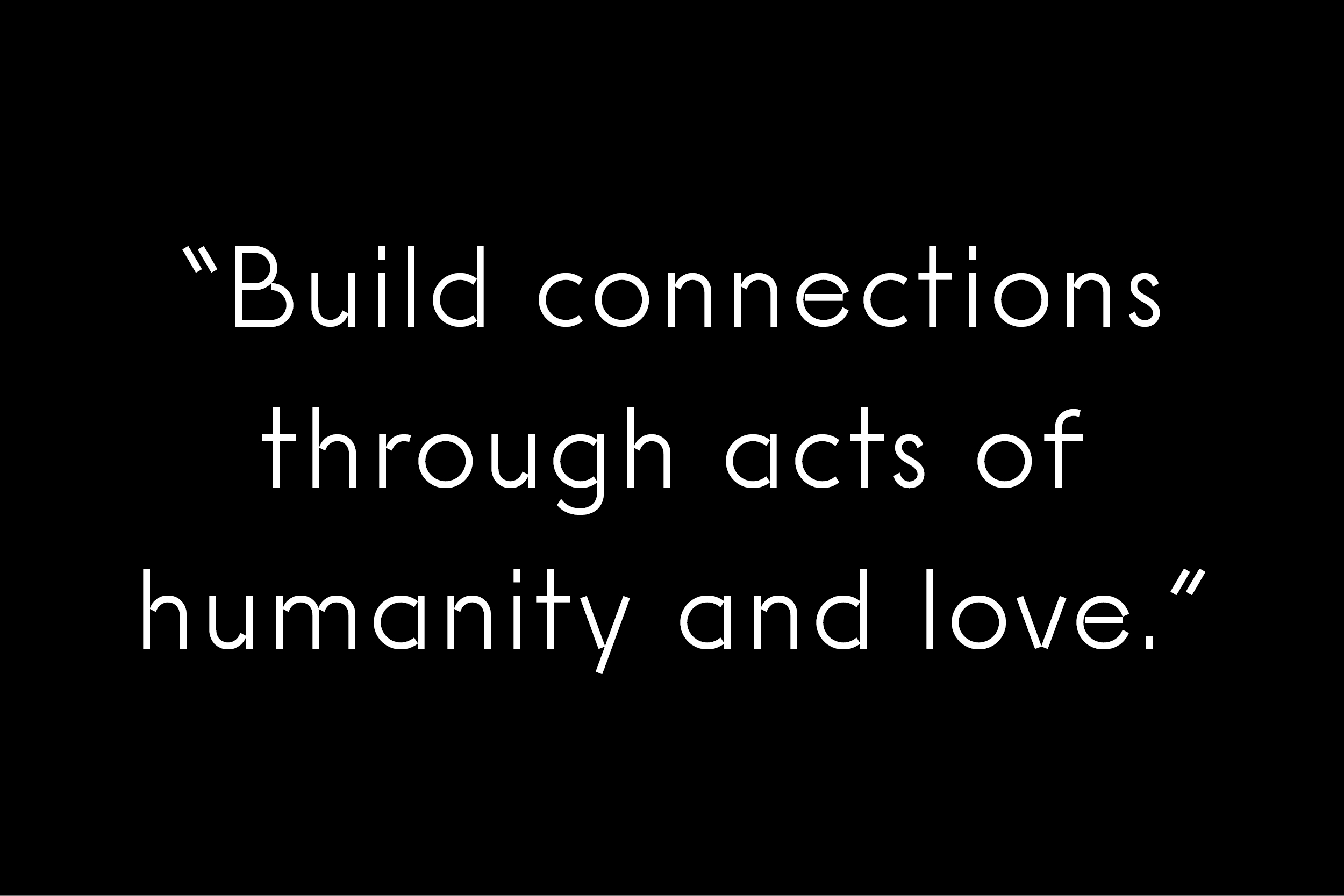
Dear Sandro,
You began this school year trying to learn more about this idea of “excellence.” It has been
overused at your school and within your network, and there’s something about that word that doesn’t sit right. You made the decision to embrace this question: What do we mean when we say Black excellence? Immediately this question led to more questions like Who’s we? Who’s Black and who says so? What does excellence mean? What does mean mean? Simply put, you just wanted to learn more about what a non-Black teacher like yourself can do to empower Black youth.
It boils down to the simply put version of your big idea, since there are so many entities that demand you try your best to work despite the students in front you (often described by their deficits). Beginning this project was something you wanted to be for the students, with the students. The polarizing nature of teaching, as it's rooted in control and the gatekeeping of knowledge, has always frustrated you, and probably will for a long time. However, trudging through the day-to-day checkboxes and protocols brought to mind the words of Jorge Lucero. The way he talks about running in place is how you felt in the beginning and middle of this project. What helped you get out of this running in place way of doing things was understanding that, “the work happens when I am in the world,” and “the origin of the work can also be the work . . . as long as the artist initiates it as work.” So, surprise, Sandro: The classroom was your world, the work WAS happening, and it was being initiated by you each and every time you made space for your students to understand their excellence (but we’ll get to that later).
Process
As winter came, everything was getting in the way. Everything. Specifically death. Two of your 7th grade students lost someone. A sister, a cousin. Both were former students of your school, so this affected more people than you’ll know. New students arrived, and came with their stories. For one student, this was his first holiday season without his mother. Not to the fault of anyone, grades dropped, attendance dropped, yet you were made to feel as if it was Sandro’s fault that this group of kids were “on the decline.” The weight of your worries, and overall sense of incompetence was alleviated when the Winter Seminar happened. Your heart was filled upon seeing the cohort, and Rachel, and Nick, and Jeremy. You cried. You learned a meaningful idea to keep in mind as the struggles of the school year, and life (it seemed), got in the way of your work: Don’t worry about a full resolution.
For the trauma, the project, the work—it was counterintuitive to expect a full resolution, as all of these things are worked through in cycles, and parts of them can repeat. This helped you feel the opposite of defeated. This opposite-of-defeated feeling allowed you to confront that police officer that was writing a ticket for J; ticket avoided. Apparently, you’re a street lawyer. This opposite-of-defeated feeling allowed you to absolutely dive into beginning the who-knows-when-it’ll end process of restoring your classroom to what you want it to be, and the project too. You collaborated with your team (who you love dearly), and the team of counselors, who quickly acclimated to your needs (which you are so very thankful for).
As February became March, you began to understand that moments of humanity and love were the work you needed to be doing. Through the laughter, the jokes, the moments of very serious talks, very emotional talks, and the reflections and other moments you won’t remember forgetting, your students showed you that they know a lot more than you think they know. They showed that they know more than they think they know. This whole time, you thought that if it wasn’t for you, then they wouldn’t know they were excellent. You also felt like you had to reveal the white supremecist ways of this country in detail in order for them to understand that it influences their school’s idea of excellence, and subsequently their own. Savior complex, much? Right. They are fully aware of how the world views them, how they view each other, and why and how. What it took to “get there” was showing that you’re human too, and that you’re trying to build connections to understand their context and their community. Only then, did they feel they could fully share the thoughts they have about themselves and their community.
Conclusion
When you finally got the time to have a damn seat, and just talk with students Marisa and J, you had it all laid out for you. Prior to this discussion, you were inspired by the work of Damon Locks, as he tells stories through audio experiences. Throughout the year, you’ve made time for students to create music on your iPad, and you knew there just needed to be clips of students speaking their truth. When you three sat together, it was then that you saw the work (continue to) unfold before you. This talk was equal parts learning, synthesis, and laughter. The learning was theirs. Their excellence, their Blackness, their story was theirs. What’s important for you to remember is that you didn’t give it to them. It would be harmful to believe that they wouldn’t have this story without you. Rather, you just made space for their story and THEY chose to reveal it. It was this discussion that helped create the final sound from this experience.
Now, you can’t say the project is over because there is no anticipated resolution for the work you are deciding to do each and every day. As your years of teaching continue, remember: You’re a non-Black educator of Black students. You can never ascribe what they need, but can only build connections through acts of humanity and love. What makes your kids great is already present, and they know it.
—Sandro
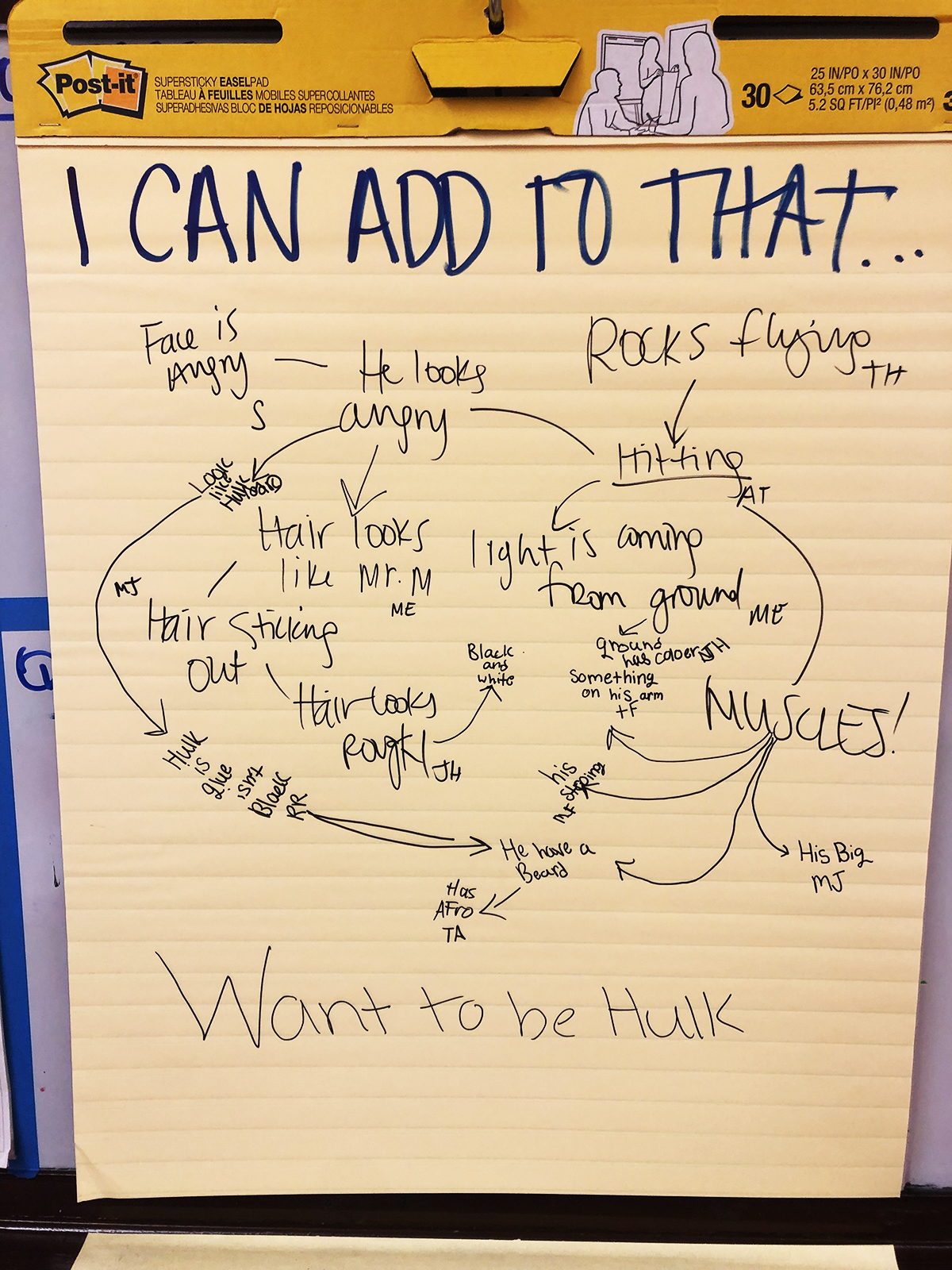
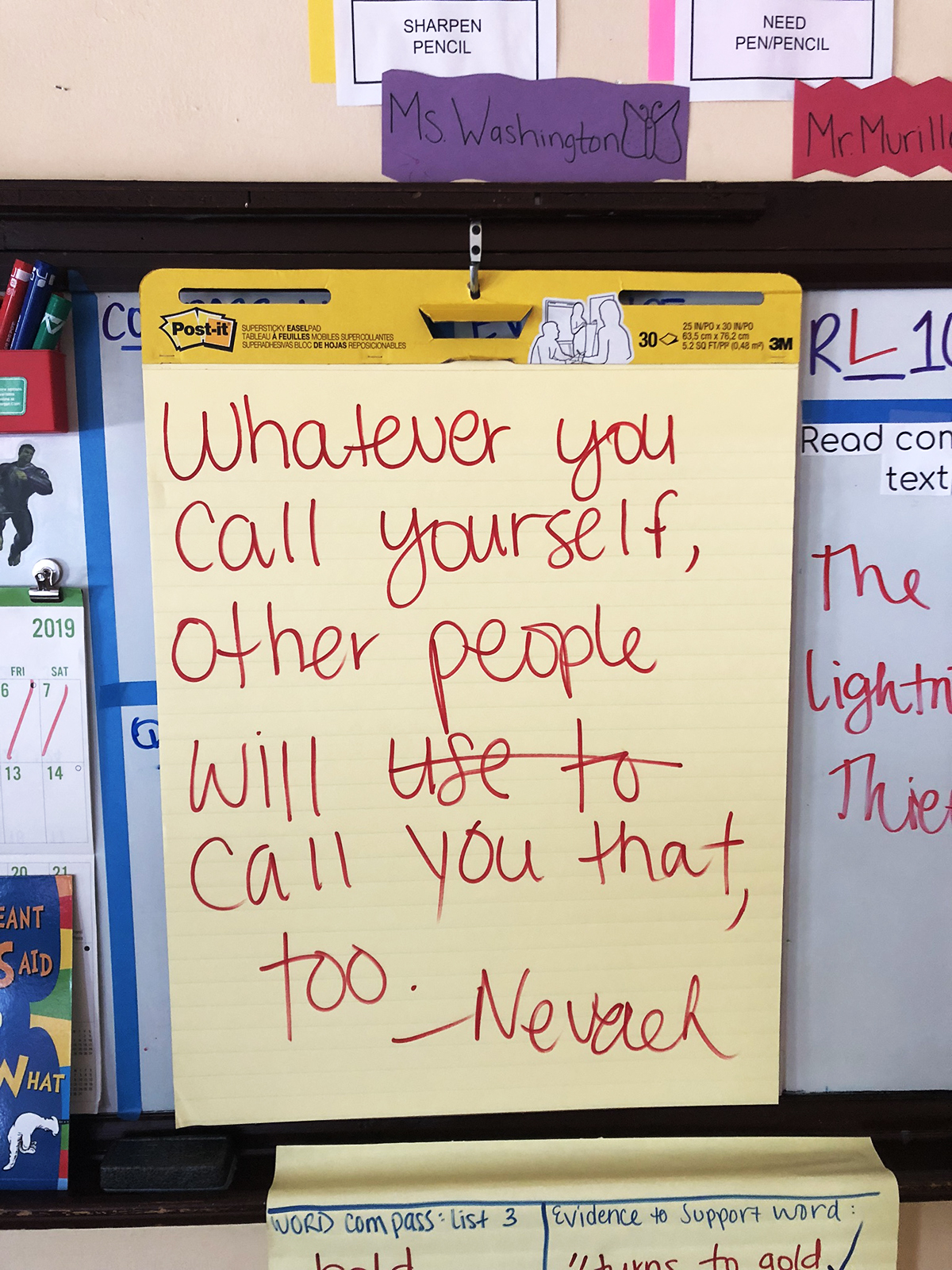
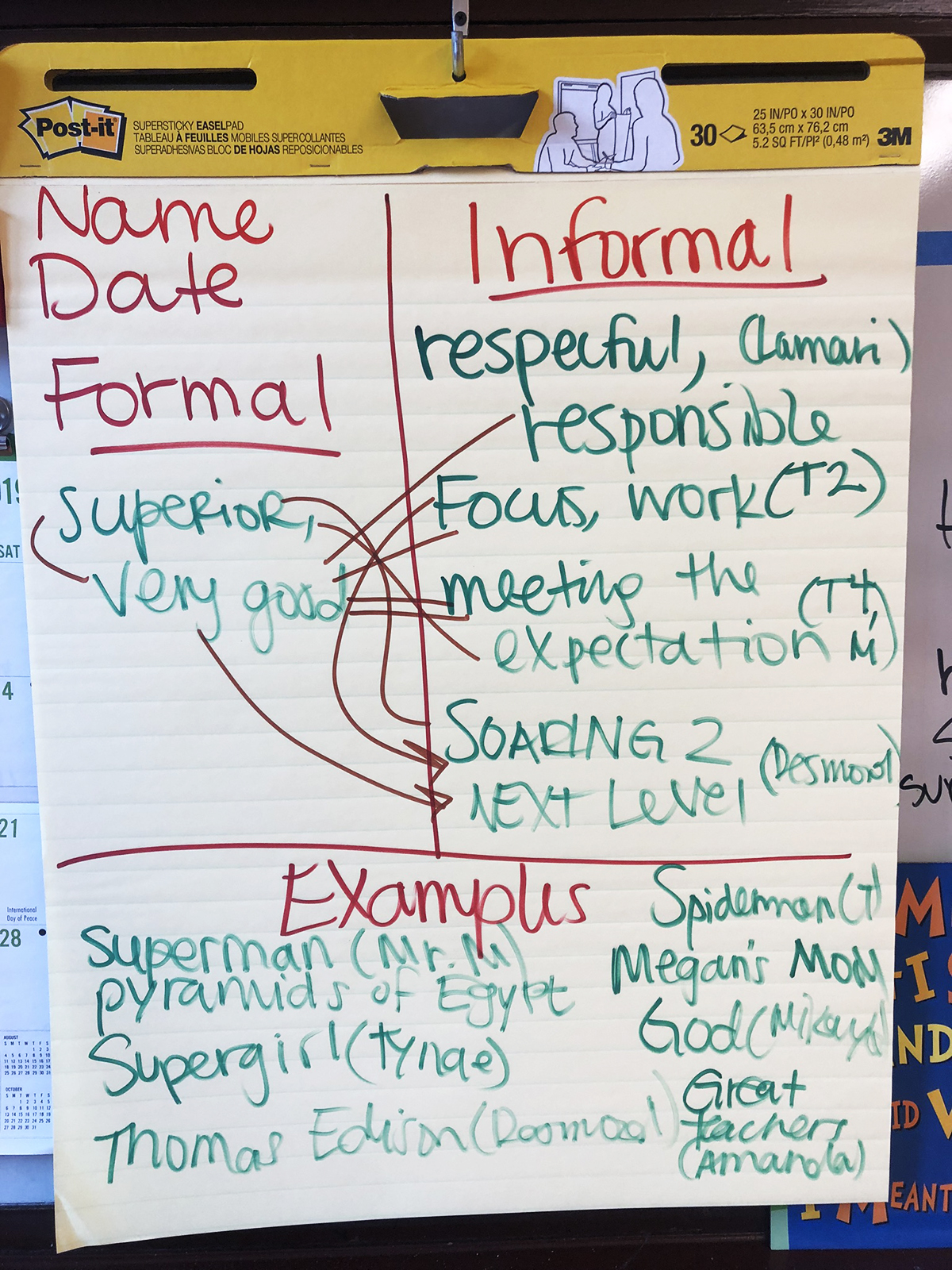
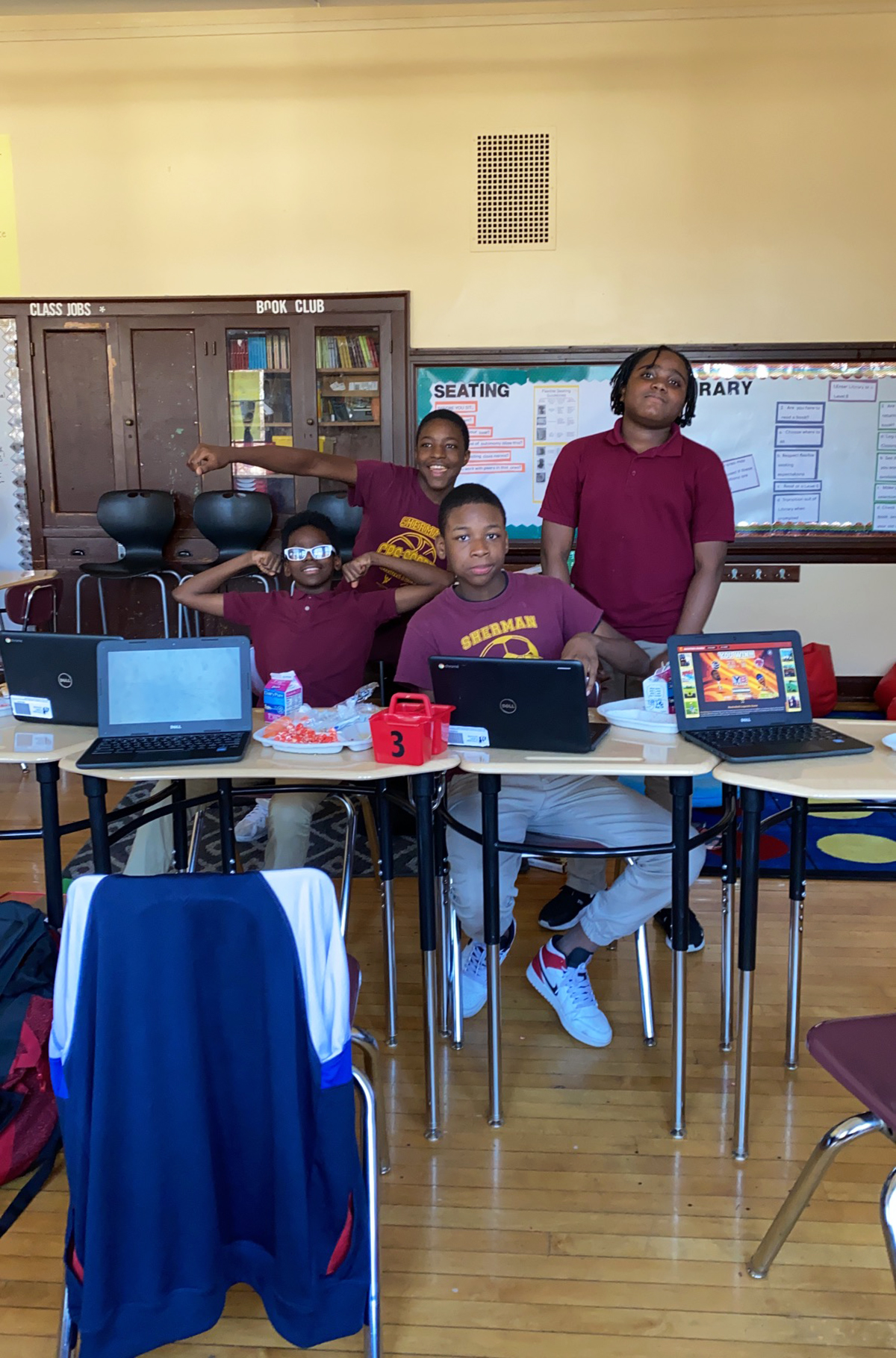
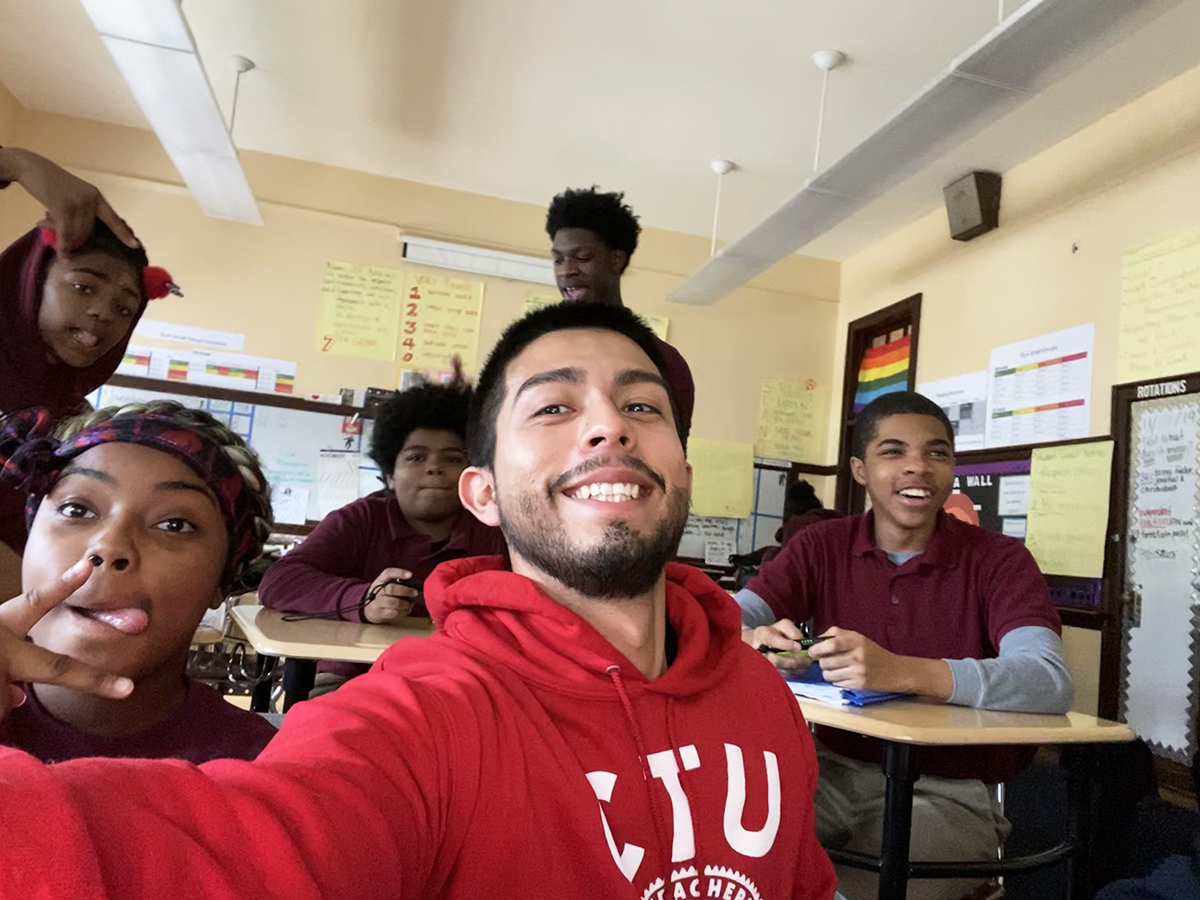
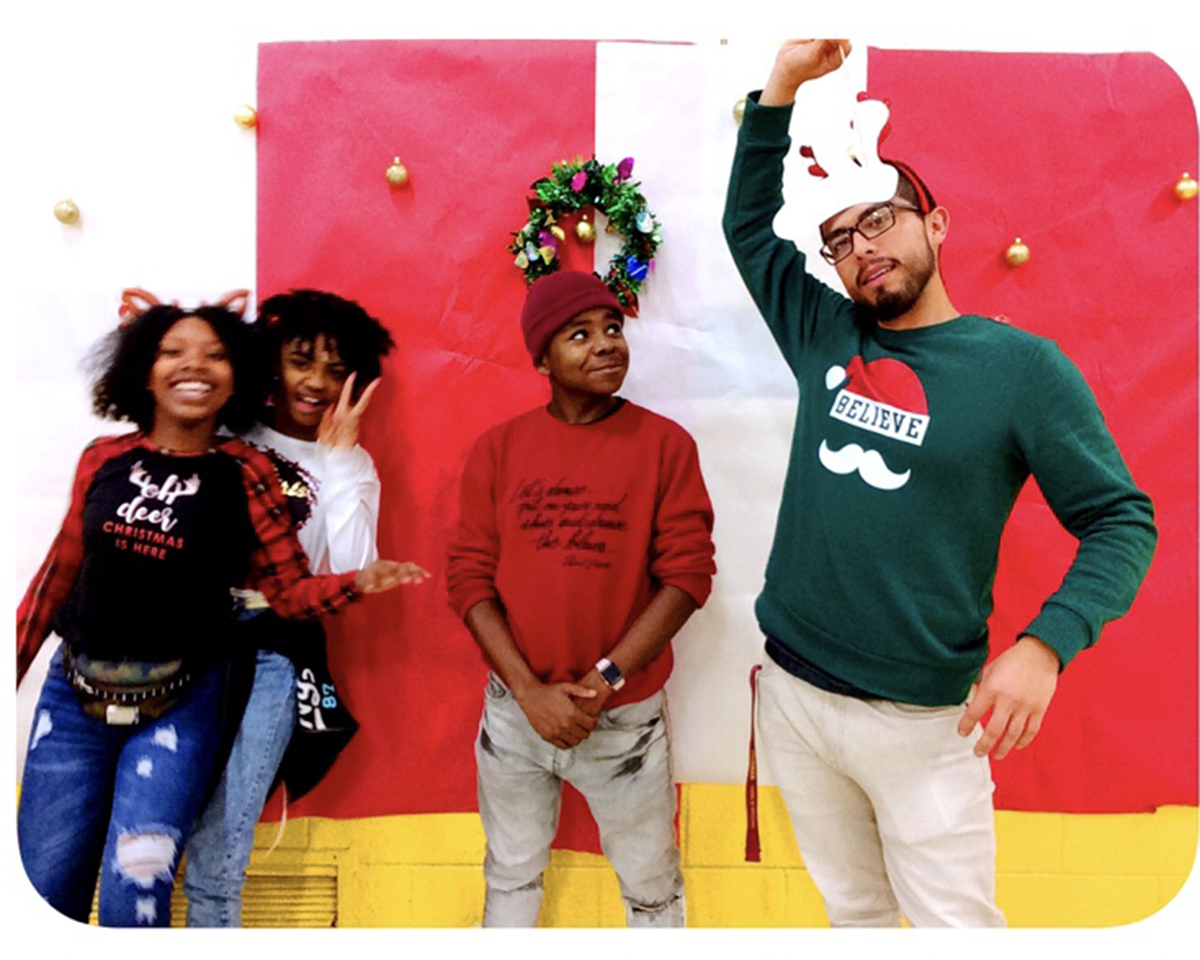
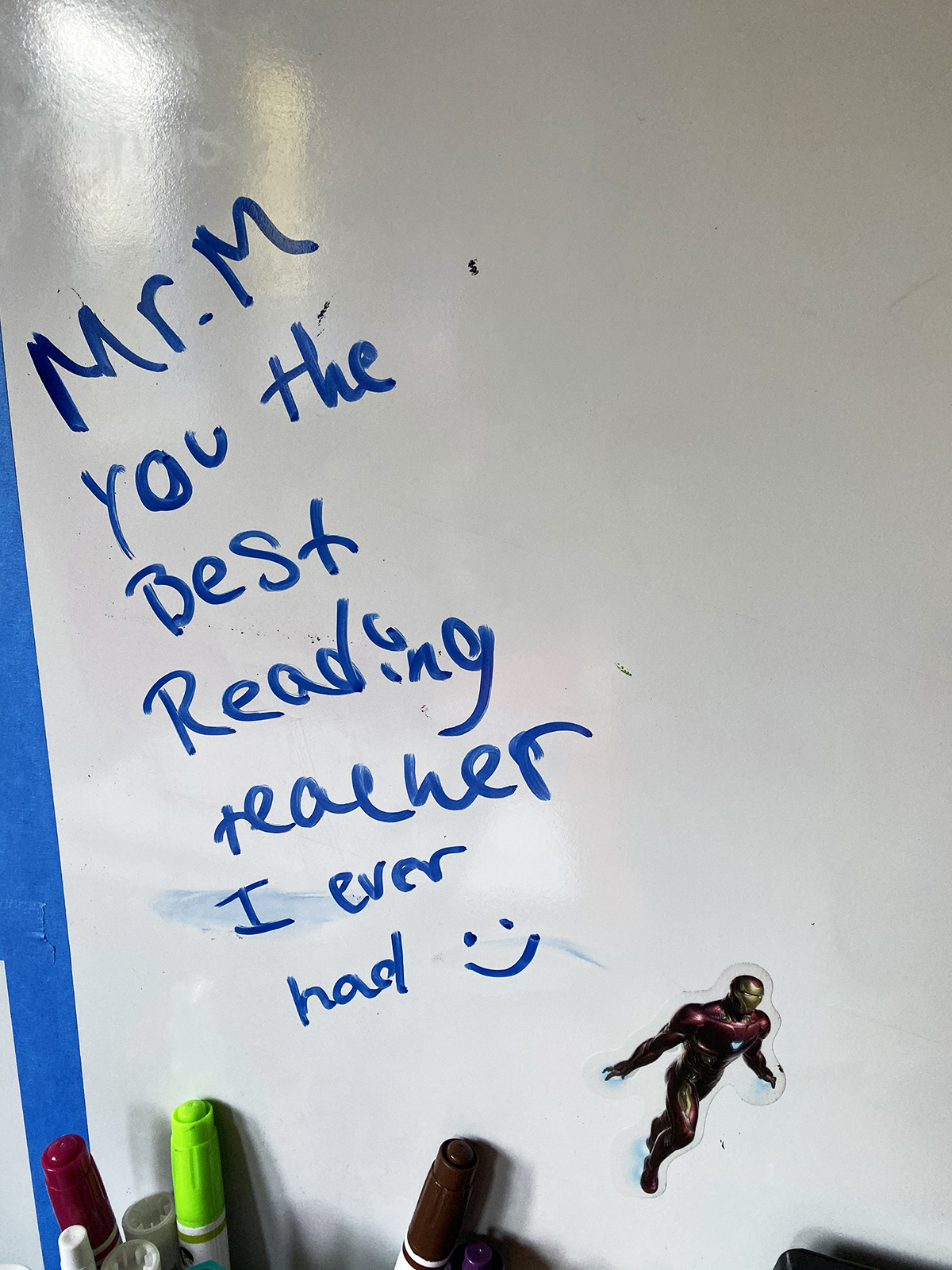
WORK WITH HUMANITY AND LOVE
Building trust takes vulnerability on both sides. The most important work is laughter, jokes, serious talks, emotional talks, and unforgettable (yet somehow forgotten) moments. Deliberately make space for those. Without a real relationship built on these values, no one can truly share themselves, least of all students to their teachers.
Sandro Murillo
Sherman School of Excellence
Sandro Murillo is a 6th and 7th Grade teacher of English-Language Arts and Social Studies in Chicago. Sandro teaches at an AUSL school in Back of the Yards. There he serves as the staff advisor for his school's Strategy Club, and is one advisor for his school's Student Council. He is also a member of LEAP Innovation's ELEVATE Pilot Cohort for his school, whereby professional development is taken for incorporating personalized learning in one's classroom. Sandro lives with his partner and their dog in Gage Park, Chicago.
